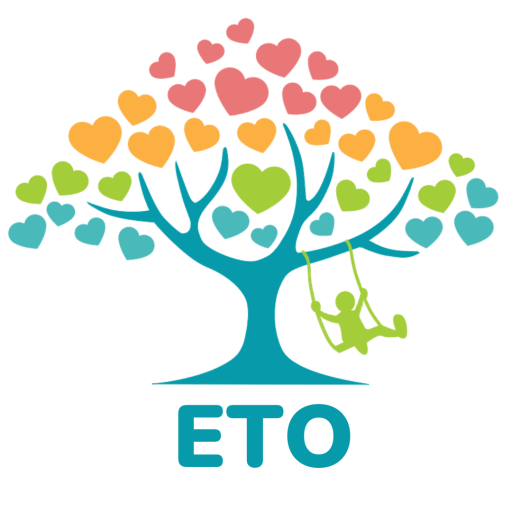So far, throughout the last few weeks, we’ve focused on the development of gross and fine motor skills, and how toys can support this. We’ve talked mostly about ‘typical’ development, but what happens when motor development doesn’t follow this path? Movement issues can take different forms, and may look like general clumsiness, poor balance and posture, specific weaknesses in fine or gross motor skills, or poor hand-eye coordination.
Atypical Motor Development
It is important to remember all children develop at different rates, acquire skills at different times to their peers, and some need additional time and support to master certain skills. However, being aware of developmental milestones and identifying delays can allow for early intervention to help your child overcome or manage limitations and be healthy and happy. There are plenty of online resources available that detail developmental charts and milestone trajectories, and you can check out our two previous blog posts on gross and fine motor development for more information.
Of course there are many reasons why a child’s motor development may be impaired, some reasons include:
- Developmental Disorders (e.g. Movement Coordinatation Disorder/Dyspraxia)
- Physical disability or medical condition (e.g. muscular dystrophy, visual impairment)
- Neurological conditions (e.g. cerebral palsy)
- Intellectual disability
If a child is showing significant delays or different patterns in developing major physical milestones, it could be a sign of a motor or movement disorder.
Developmental Coordination Disorder (DCD) aka Developmental Dyspraxia
DCD is a developmental disorder believed to be present in 5-6% of school-aged kids. It’s characterised by motor performance that is substantially below what is expected in reference to a child’s typical milestones for their age, despite having had the previous opportunities needed to develop the skills. A child with DCD may have poor coordination and balance, appear clumsy and awkward, and be unable to acquire the motor skills their peers are like catching a ball, riding a bike, and tying their shoelaces.
These motor disturbances can have a large impact on a child’s life in a number of ways. Not only does it significantly interfere with their daily functioning and academic achievement, but their motor impairments may prevent them from participating in activities, which can interfere with their ability to interact with peers and lead to feelings of frustration. This can have a harmful impact on their self-esteem and self-efficacy!
Signs to look out for?
Gross Motor
- Clumsy movement, frequently bumping into objects and people
- Poor balance and hand-eye coordination
- Difficulty with sitting up, walking, climbing
- Difficulty with agility required for hopping, jumping, skipping
- Slow to learn to ride a bike or swim
- Tires easily or cannot keep up with other children when playing games/sport
Fine Motor
- Uncertain hand dominance
- Has difficulty holding pencil and may avoid writing and drawing ,
- Unable to use scissors, complete jigsaws, construct models following diagrams
Daily Living Skills
- Difficulty dressing (may mix up order of clothing) and undressing, and particular difficulty with buttons and laces.
- Unable to use the toilet independently
- Slow or messy eater, prefers to finger feed as cannot use cutlery
How to help?
It was previously thought DCD was something kids ‘grew out of’, however studies looking across longer periods of time and into adulthood have shown the difficulties can persist and may lead to poor mental health and emotional / behavioural issues.
The good news is outcomes can be improved with intervention, and kids with DCD can learn to perform most tasks given support and opportunities!
A systematic review of research completed between 1995 and 2011 found intervention is of benefit for kids with development coordination disorder. Specifically, it found ‘task-oriented’ interventions more effective i.e. learning a particular motor skill and paying attention to the aspects of the task causing most difficulty by planning how to complete the task, implementing the plan and then reviewing how it went.
Children with DCD often require these interventions from specialists including physiotherapists and/or occupational therapists. They deliver child-focused, targeted intervention to support strength, agility, and endurance, fine motor control and specific daily life skills training.
What about parents?
Ideally, parents should be involved in supporting their child with DCD in accordance with the above therapist’s support. Why? Because learning a motor skill requires lots of practise, encouragement and persistence, and parents are in the best position to support this in everyday life. Playing with toys and completing daily activities at home with your child can offer a warm, trusting environment to practise skills and increase confidence. The best thing parents can do is:
- Focus on specific, simple task to begin with – being just challenging enough to allow for success
- Break down processes into simple components to teach new skills
- Use basic language and visual instructions
- Encourage and reinforce their strengths!
References:
Council, H. C. (2015). Supporting Children with Dyspraxia and Motor Co-ordination Difficulties. Routledge.
Kit, B. K., Akinbami, L. J., Isfahani, N. S., & Ulrich, D. A. (2017). Gross motor development in children aged 3–5 years, united states 2012. Maternal and Child Health Journal, , 1-8. doi:10.1007/s10995-017-2289-9
Smits-Engelsman, B. C. M., Blank, R., Van der Kaay, A., Mosterd-Van der Meijs, R., Vlugt‐Van den Brand, E., Polatajko, H. J., & Wilson, P. H. (2013). Efficacy of interventions to improve motor performance in children with developmental coordination disorder: A combined systematic review and meta‐analysis. Developmental medicine & child neurology, 55(3), 229-237. doi:10.1111/dmcn.12008
Recommended Toys:

